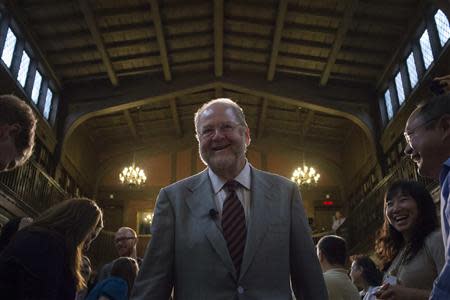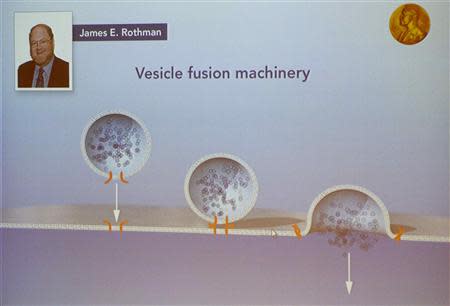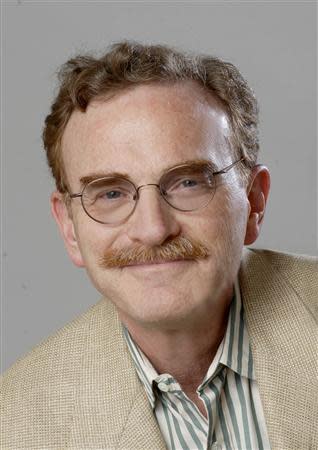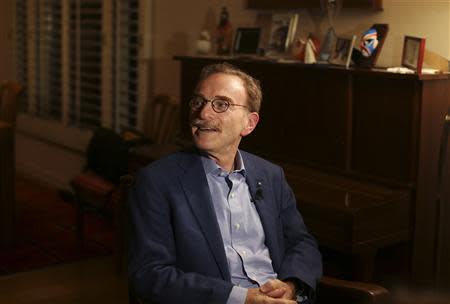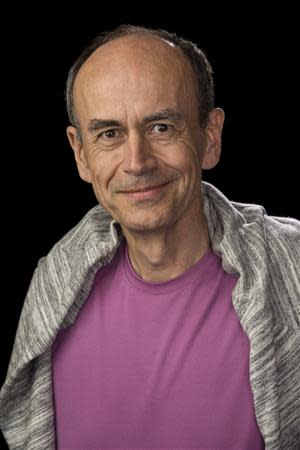Scientists win Nobel for mapping body's 'cell traffic' system
By Niklas Pollard and Julie Steenhuysen STOCKHOLM/CHICAGO (Reuters) - Three scientists won the Nobel medicine prize on Monday for plotting how cells transfer vital materials such as hormones and brain chemicals to other cells, giving insight into diseases such as Alzheimer's, autism and diabetes. Americans James Rothman, 62, Randy Schekman, 64, and German-born Thomas Suedhof, 57, separately mapped out one of the body's critical networks in which tiny bubbles known as vesicles enable cells to secrete chemicals such as insulin into the surrounding environment. This cellular machinery, which has evolved over a billion years, is so sensitive that slight malfunctions in the mechanism can cause serious illness or death. "Through their discoveries, Rothman, Schekman and Suedhof have revealed the exquisitely precise control system for the transport and delivery of cellular cargo," the Nobel Assembly at Sweden's Karolinska Institute said in a statement when awarding the prize of 8 million crowns ($1.2 million). Their research on how cells transport material around sheds light on how insulin, which controls blood sugar levels, is made and released into the blood at the right place at the right time. Diabetes and some brain disorders have been attributed at least in part to defects in the vesicle transport systems. The scientists' work explains an "absolutely essential" component of cell biology that helps scientists understand how the brain or hormone secretion works, said Dr. Jeremy Berg, who for years worked as director of the National Institute of General Medical Sciences, a part of the National Institutes of Health, which underwrote much of the research. "It's one of the prizes for which there is not a treatment that came out of it directly, but there are probably literally thousands of laboratories around the world whose work would not be taking place the way it is without their work," said Berg, who is director of the Institute for Personalized Medicine at the University of Pittsburgh. The Nobel committee said the work could help in understanding immuno-deficiency and brain disorders such as autism. "HOW CELLS WORK" "Their discoveries could perhaps have clinical implications in psychiatric diseases, but my guess is that they will be more useful for the understanding of how cells work," said Professor Patrik Rorsman of Oxford University. Schekman, a geneticist, first became interested in how proteins move within cells in 1974. At the University of California, Berkeley, he began working on yeast, a single cell microorganism. Research showed his findings applied equally to human cells. Among Schekman's research aims is to study whether the accumulation of the protein amyloid in the brains of Alzheimer's disease patients is due to disruption of the vesicle system. Suedhof, a neuroscientist, has focused particularly on the brain and questions of human thought and perception, emotions and actions determined by signaling between neurons, cells which constitute the foundation of the nervous system. "My major interest is in trying to understand how neurons in the brain communicate - how these processes get established during development, and how they become impaired in autism and schizophrenia," Suedhof said in an interview. Suedhof said the work was really about "cell traffic," the ability of cells to move material around. Medicine is the first of the Nobel prizes awarded each year. Prizes for achievements in science, literature and peace were first awarded in 1901 in accordance with the will of dynamite inventor and businessman Alfred Nobel. "My first reaction was, `Oh, my god!`" said Schekman, who was woken with the good news. "That was also my second reaction," he added, according to a University of California, Berkeley, statement. Schekman said in an interview that his work was born out of a desire to understand how it was possible for one cell to talk to the other. He said figuring that out would help deepen understanding of how the brain works, "one of the most important questions in biology today." Suedhof said while he and his fellow prize winners had worked separately they had met each other "many, many times." They had "argued and sometimes agreed and sometimes disagreed," he said with a laugh. (This story is refiled to amend sixteenth paragraph to read University of California, Berkeley instead of Berkeley University) (Reporting by Stockholm Newsroom; Additional reporting by Kate Kelland in London; Editing by Alistair Scrutton, Ralph Boulton and Ross Colvin)
